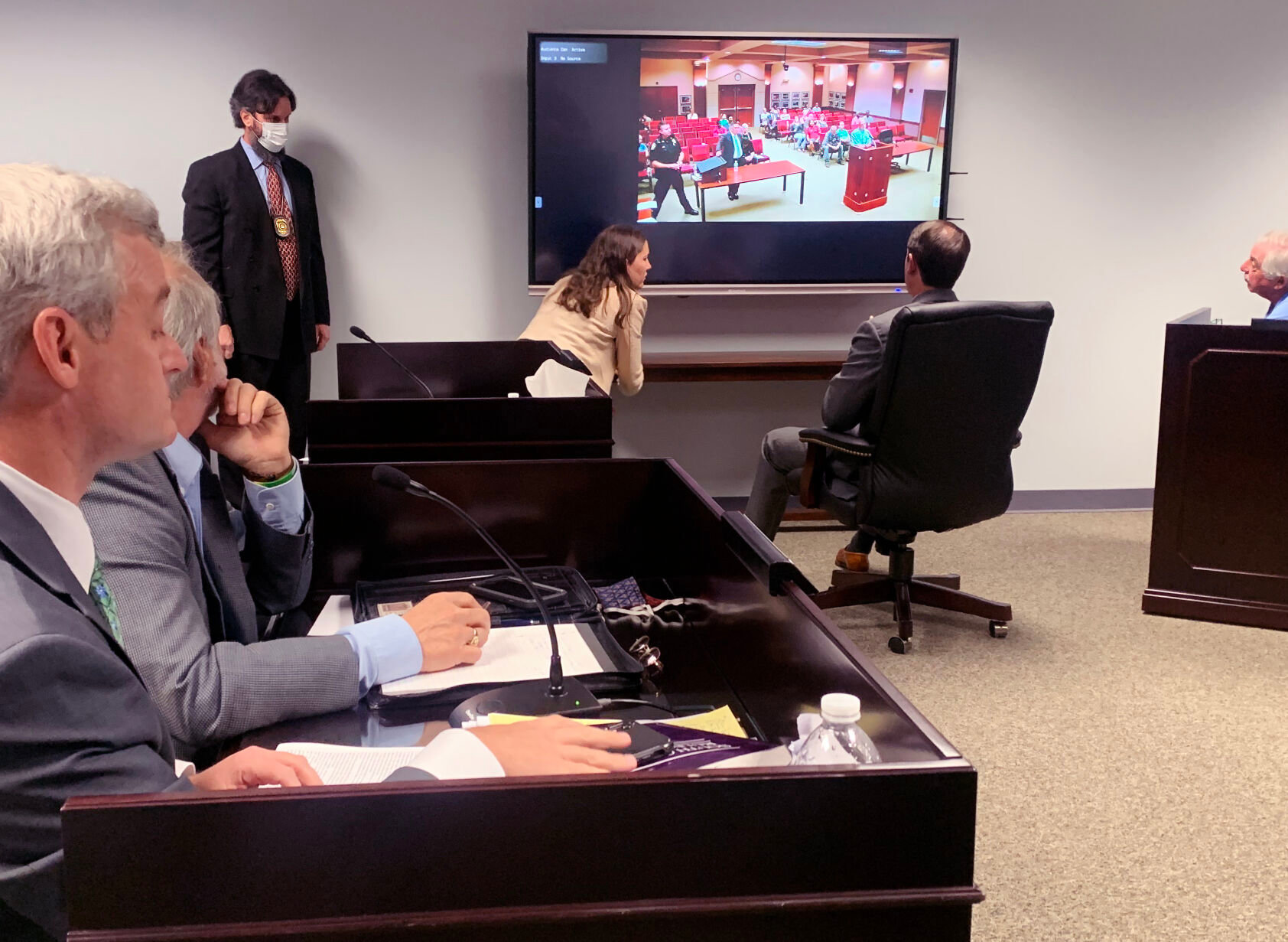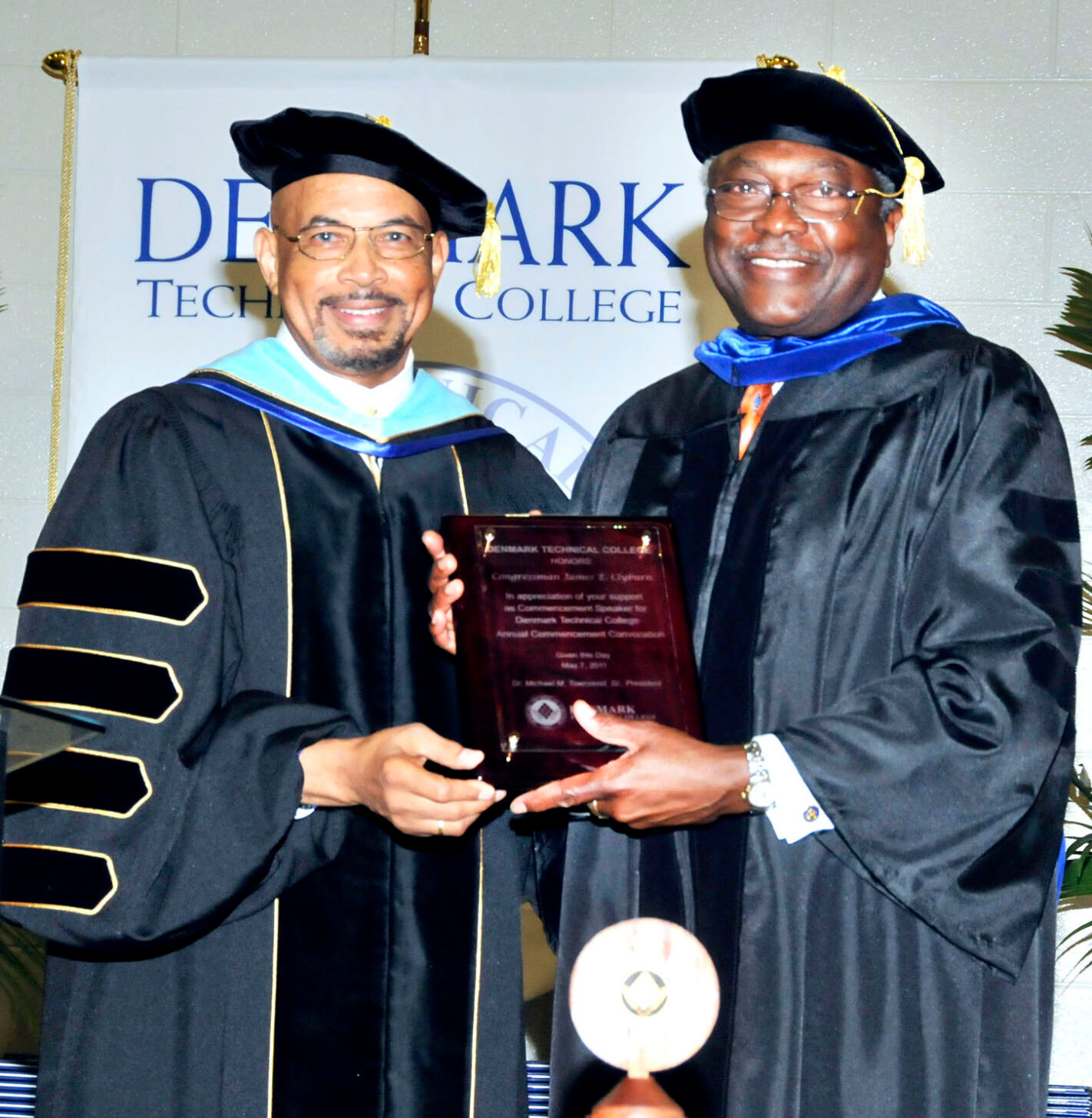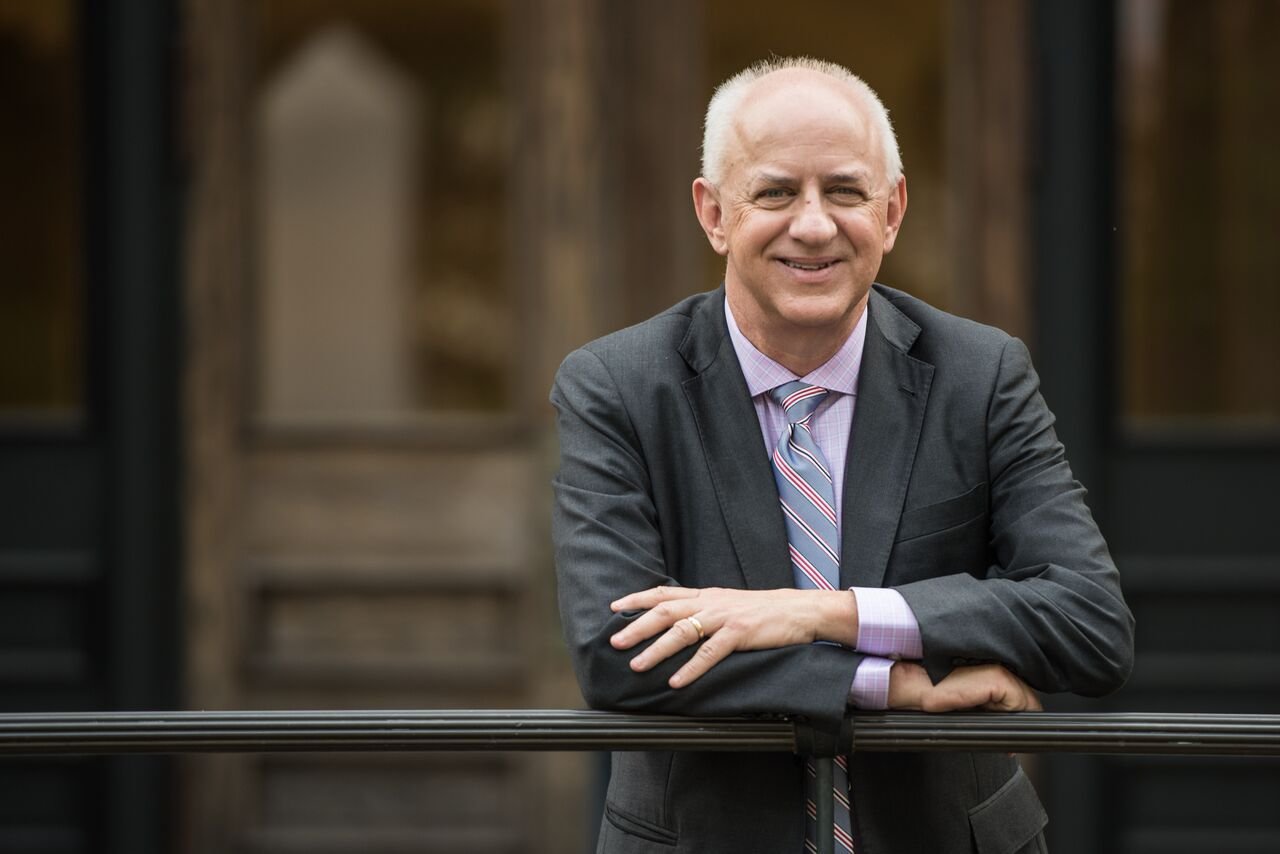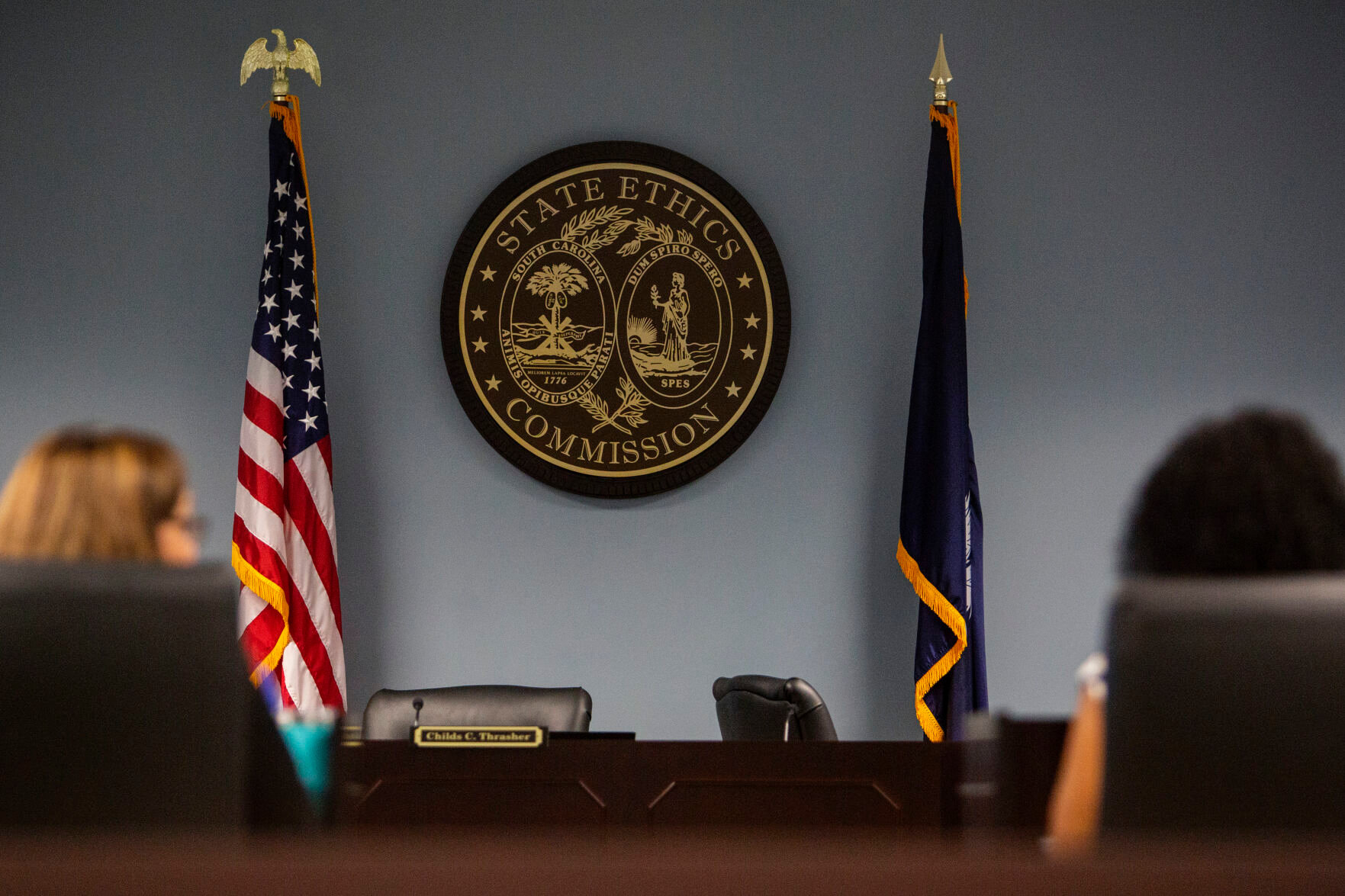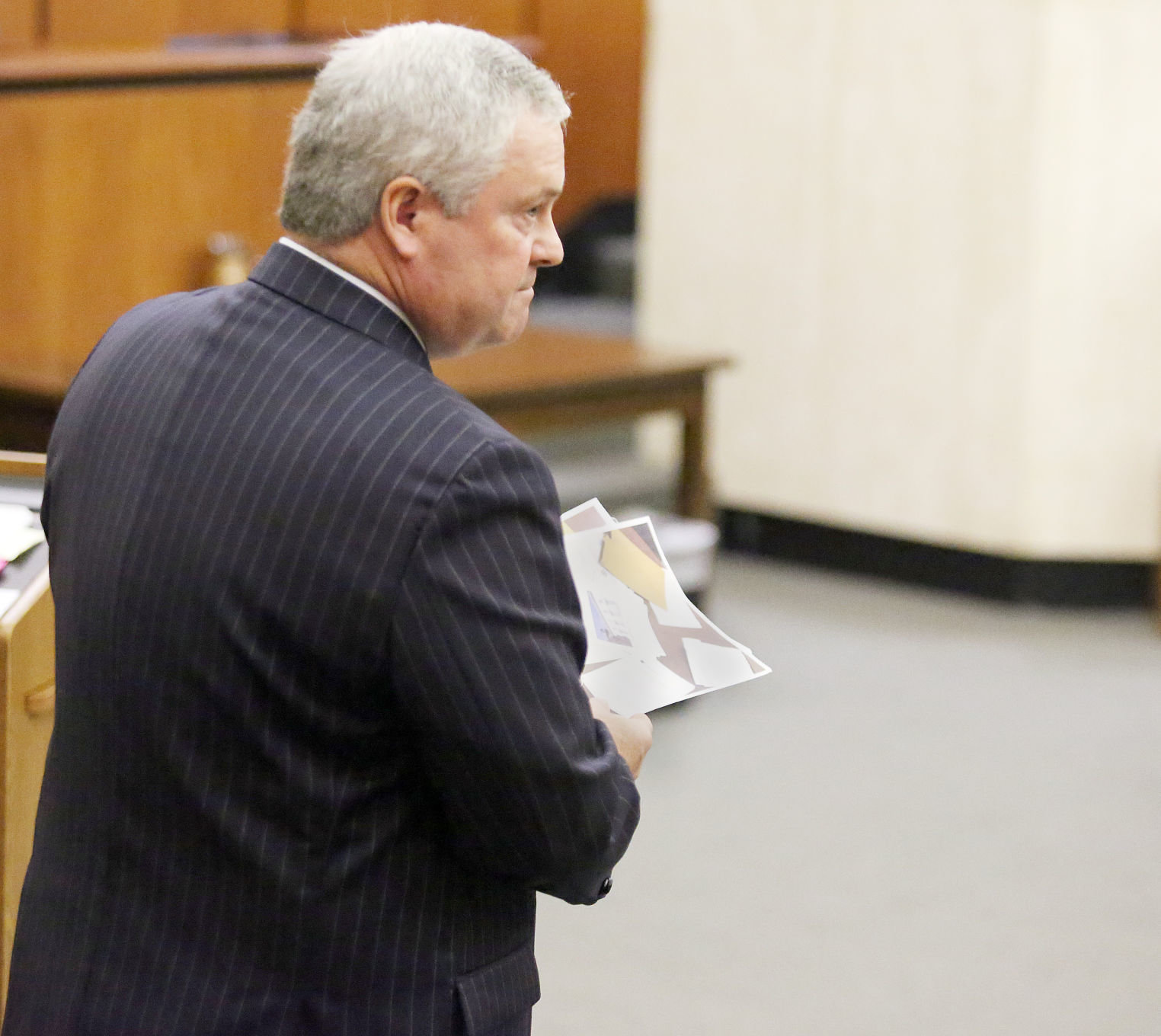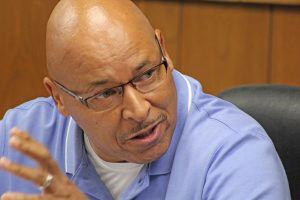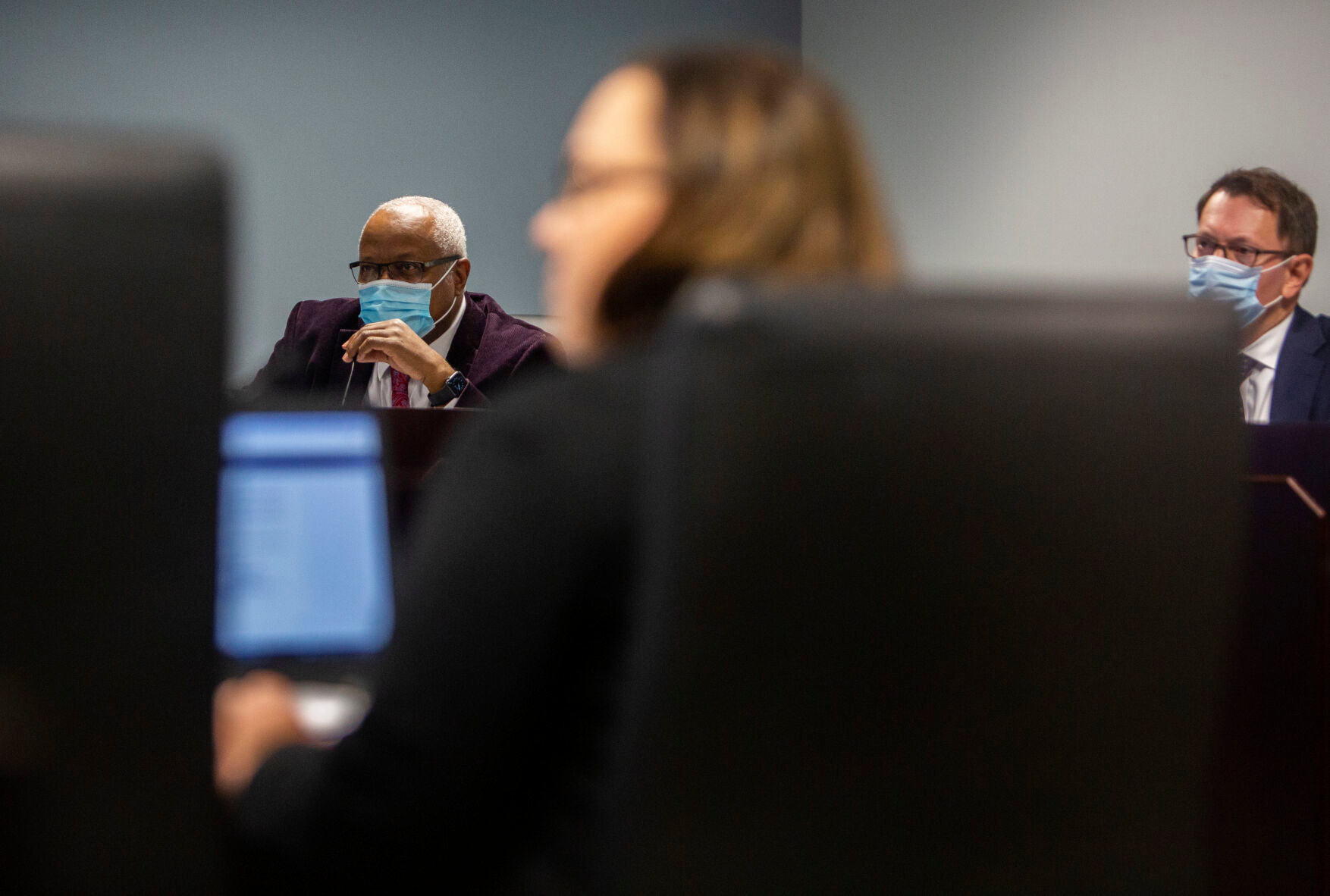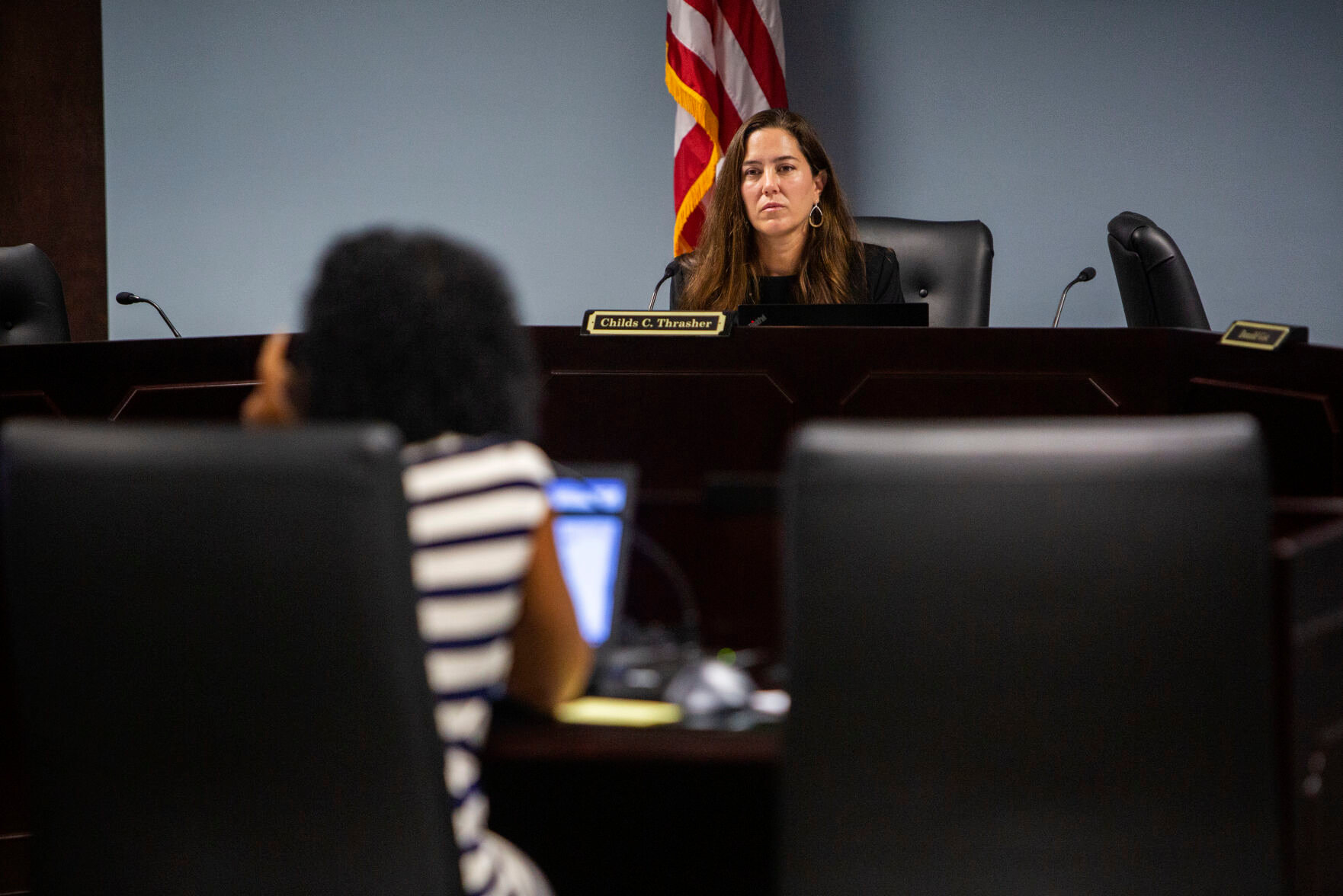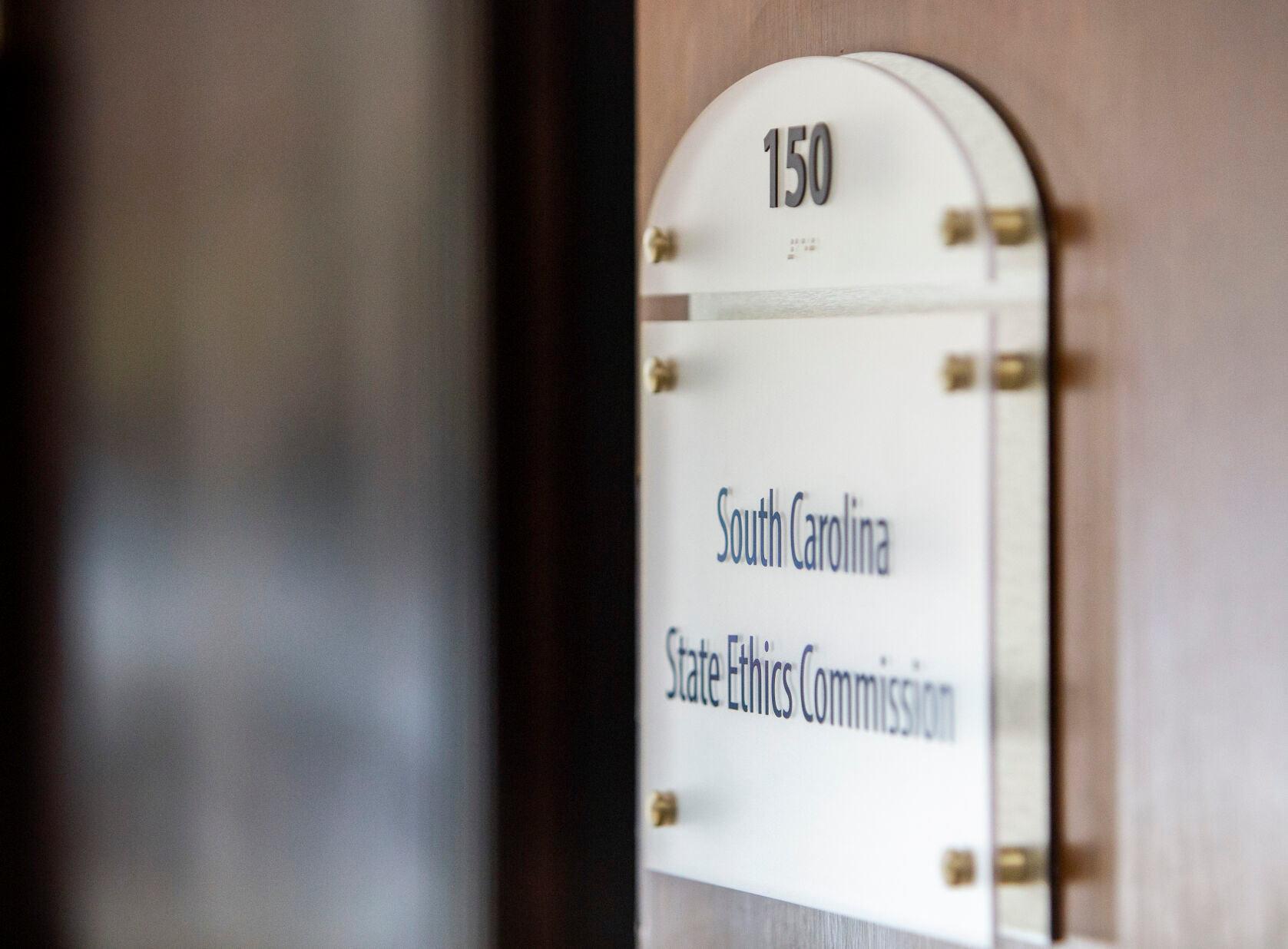Uncovered: S.C. public officials skate by ethics investigations with little accountability
Editor's note: This article is part of The Post and Courier's Uncovered project. To read more investigations from it, CLICK HERE.
***
The State Ethics Commission should be one of South Carolina's most powerful anti-corruption tools.
But a deeper look reveals an understaffed government watchdog that was set up to fail. It has routinely let misbehaving public officials off the hook with warnings and minimal fines. And it passes few cases on to law enforcement for criminal prosecution.
Critics say this sends a troubling and dangerous message to other public officials: Misbehave, and you will face few consequences. When ethics laws aren't strictly enforced, that vacuum can have a corrosive effect on government and undermine public trust.
The Post and Courier scoured a decade's worth of records that revealed how South Carolina's government watchdog handled cases where politicians were accused of mishandling conflicts, lining their pockets with public money, steering contracts to business partners and granting jobs to relatives.
They include the Darlington County councilwoman accused of voting to send thousands of tax dollars to her nonprofit. And the Bethune mayor who pushed to hire his son as the town's police chief. And the Bishopville city council members who voted not to pay back thousands in illegal stipends they received.
In example after example, troubling trends emerge: The commission's probes often end in settlements, some of which ignore serious allegations in favor of benign ones that are easier to prove. Other cases are dismissed on technicalities, even when investigators find evidence of questionable conduct.
Fines, when assessed, rarely approach the $2,000 maximum allowed under state law. Defendants have been allowed to downplay their wrongdoing and get credit for claiming they only broke the law unintentionally. Many continue their political careers unabated.
What's more, state prosecutors say the agency has traditionally not forwarded criminal cases to them for prosecution.
The S.C. Attorney General's Office says it rarely receives cases from the Ethics Commission. A dozen solicitors reached for this story collectively recalled receiving only a handful of cases over the years.
Critics and defenders of the Ethics Commission agree on one thing: State lawmakers bear much of the blame. They gave an agency with just a few investigators the daunting task of overseeing hundreds of cities, towns and counties and armed them with an ethics law that is riddled with loopholes.
In an interview, Ethics Commission Executive Director Meghan Walker said her agency has made strides since she took over in 2018: They have reduced the commission's case backlog, expanded ethics training for elected officials and candidates and cut down on settlements that excuse defendants' misconduct. She also said the commission has worked with prosecutors on criminal cases during her time in charge.
Beyond that, Walker doesn't see it as her place to call for sweeping changes to the state's ethics act.
"We follow the law as written," she said.
Still, the state's weak ethics laws and the commission's light-handed approach to local misconduct has come at a time when South Carolina can least afford it.
As newspapers shrink and decline, there are fewer watchdogs looking over the shoulders of elected officials. Federal prosecutors are bringing about half as many public corruption cases as they did two decades ago. And the State Law Enforcement Division, which lacks a dedicated white-collar unit, isn't equipped to fill that void.
The Post and Courier dug into the Ethics Commission as part of Uncovered, an effort to partner with local newspapers to investigate corruption across small-town South Carolina.
The findings indicate the agency - and the lawmakers who empower it - have work to do to make the Ethics Commission more than a paper tiger.
Low-hanging fruit
The agency's poor reputation is grounded in cases like the one Deborah Bonnett brought before the commission in 2011. It was emblematic of how the agency ignores significant allegations if officials agree to lesser charges.
At the time, Bonnett was a councilwoman for Rowesville, a town of less than 300 in rural Orangeburg County. She accused the town's mayor, Glennis Simpson, of helping get his wife a job as town clerk, steering her a no-bid landscaping contract and directing $10,700 in public dollars to her for a side job overseeing the construction of a community center.
Despite submitting photos and documents to support her claims, Bonnett said she didn't hear back from Ethics Commission investigators. No phone calls following up with more questions. No updates on how the case was progressing.
Five months later, she read in a newspaper that the case had been resolved in a settlement. The commission handed the mayor a reprimand for his connection to the community center money. His wife got a warning for accepting extra pay for work she could have performed in her normal duties as town clerk.
Case records didn't indicate that investigators interviewed anyone other than Simpson and his wife or that they looked into Bonnett's other allegations.
Simpson's defense, according to settlement records, was that he didn't know his actions violated the law. He accused Bonnett of having a vendetta against him.
The commission ordered the Simpsons to each pay $200 to cover the cost of the commission's investigation. Efforts by The Post and Courier to reach them for comment for this story were unsuccessful.
"They just got a slap on the hand," Bonnett said. "To me, it should have been more."
Cases often play out that way as the Ethics Commission's overburdened investigators look for ways to resolve them quickly, said Steve Hamm, the agency's executive director from 2017-18.
Hamm stressed that the agency's handful of investigators work hard and take their jobs seriously. But they also field more than 100 complaints a year, many of which allege schemes that are difficult or time-consuming to prove, Hamm said.
And some conduct the public views as unethical doesn't necessarily violate state law.
That leads investigators to pursue lesser allegations, get the defendants to admit wrongdoing and move on to the next case, Hamm said.
In annual reports to lawmakers, Hamm and former Executive Director Herb Hayden repeatedly wrote that the agency's staffing and funding levels were "major barriers to the fulfillment of the agency's mission and goals."
"I was extraordinarily frustrated for the investigators and the rest of the staff about the flood of stuff coming through," Hamm said. "Some of this stuff gets really complex and takes serious time and attention."
In another case, Steve Goggans, a Georgetown County councilman and architect, was accused of using his position to steer a client's project through a county zoning process.
He lobbied county staff and, at one point, requested his client pay an additional $72,000, in part for negotiating for favorable outcomes, according to a complaint. Goggans also attended a county zoning board meeting on his client's behalf. The business owner who filed the complaint said Goggans' conduct was an example of "back-door politicking" that "reeks of impropriety."
The Ethics Commission pursued one count against Goggans for appearing before a board that he, as a county councilman, helps appoint. But they steered clear of the more serious allegations that he had used that influence to benefit a client.
In a 2019 settlement, they ordered Goggans to pay $1,000 in fines and fees.
Goggans, who still serves on county council, said he made a naïve mistake by attending the board meeting. But he pushed back against other accusations in the complaint.
"A lot of allegations were made because I was caught in the crossfire between two property owners who were feuding," he said. "People can allege all kinds of things, but that doesn't mean they're true."
In a 2014 case, Fairfield County Councilman Mikel Trapp faced accusations of improperly accepting tens of thousands of dollars from the county in lieu of health insurance coverage. Investigators also found Trapp used taxpayer funds to treat himself to a vacation after a conference in Hilton Head and voted four times to direct thousands of public dollars to his sister-in-law's employer.
But without explanation, the commission settled Trapp's case, dismissing the charges concerning his Hilton Head vacation and payments to his relative's employer.
The commission issued Trapp a warning and a $500 fee for failing to disclose the insurance payments on his annual ethics forms. Trapp, who remains a councilman in Fairfield, declined to comment for this story.
Watering down cases, especially while dropping serious allegations, doesn't serve the public's interest in holding elected officials accountable, said Lynn Teague, a good government advocate with the League of Women Voters.
"Pleading everyone down to some trivial settlement is not enforcement," Teague said. "That just makes it worse. It makes it an open playing field for corruption."
Walker, the current executive director, declined to discuss individual cases or speak to commission practices before her tenure. But she said the agency attempts to resolve all cases fairly.
"Each case is unique," she said. "And at times, charges are dropped based upon what the agency believes can be proved at a hearing."
Historically weak
Legislators created the Ethics Commission in 1975 after the federal Watergate scandal. They widened its authority in 1991 after a federal undercover investigation called Operation Lost Trust convicted 17 state lawmakers and seven lobbyists on bribery and corruption charges.
Lawmakers again passed reforms in 2016, seeking to restore public confidence amid yet another Statehouse corruption probe.
But for decades, legislators have remained reluctant to build the Ethics Commission into a powerful investigative body, some fearing it could be weaponized against them.
Lawmakers have given the Ethics Commission just four investigators to dig into complaints against officials in hundreds of cities, counties, special purpose districts and other government agencies. For years, the agency got by with just one or two.
"They have been understaffed historically," said former S.C. Gov. Jim Hodges, who served in the Legislature when it passed the 1991 Ethics Reform Act. "There is no doubt that we need to enhance the staffing."
Along with the agency's staffing challenges, it also must enforce an ethics law that is stuffed with loopholes that give public officials the benefit of the doubt while including rules that discourage potential whistleblowers from coming forward. For instance:
Whistleblowers are bound to secrecy about their complaints until the Ethics Commission has vetted their accusations. The commission doesn't accept complaints filed against a candidate within 50 days of their election.
A four-year statute of limitations excuses conduct that is discovered too late.
And even when the agency assesses a fine, it can't force the defendants to pay. More than 50 sitting officials across the state have outstanding debts to the commission, a previous Uncovered investigation found.
Defanged
The result is an ethics watchdog without much bite.
Take, for instance, the case of former Darlington County councilwoman Wilhelmina Johnson.
Johnson appeared before a county board - whose members are chosen by county council - in 2012 to request $16,000 in tax money for her nonprofit, a group that seeks "to bridge the gap between school and home with educational history, and cultural activities," according to its website.
When the request reached county council, Johnson voted to direct $2,800 to her group, fellow Councilman Billy Baldwin alleged.
Johnson insisted she wasn't paid by her nonprofit and didn't participate in the vote that sent money to her group. She appeared on behalf of the organization, she said, but did so because she was the nonprofit's only representative who could attend the county hearing. The group had a 12-member board.
Board members speaking on Johnson's behalf, because she is ill, said in a recent interview that they think Johnson did not vote on the matter. They also questioned why the issue was referred to the state agency instead of being resolved by county council.
The commission found Johnson in violation of the state's ethics law but gave her a warning, stunning the councilman who filed the complaint.
"We were all kind of shaken up with the results in the end," Baldwin said. "They should have pulled her off of council. They didn't even charge her $5."
Other cases have played out with similar results.
Like when the longtime mayor of Bethune encouraged town council to hire his son to work as police chief for the rural town of 350 in Kershaw County in 2013. Glenn Davis told fellow council members his son was ready and willing to take the $800-a-month job. Then Davis asked council for a motion to hire his son.
The Ethics Commission closed the case in 2014 with no punishment because Davis recused himself from the ensuing council discussion and vote.
In another case, an audit found Denmark Technical College President Michael Townsend had used a college credit card to make nearly $4,100 in personal purchases, including meals, gift cards, vehicle repairs and hotel stays. Townsend resigned amid the scandal.
But he defended himself to the Ethics Commission, insisting he spent that money "without any training or knowledge of procurement card procedures" and "without fraudulent intent." In return, the agency settled his case, assessing him $1,000 in fines and fees and ordering him to pay back what he had spent.
Efforts to reach Townsend for comment were unsuccessful.
A decade later, the college has no record of Townsend paying that restitution, current President Willie Todd told The Post and Courier.
A lighter touch
The Ethics Commission is known for aggressively fining politicians who fail to file their campaign and ethics reports on time, or at all. The agency collects some $300,000 in civil fines and fees a year, most of them for those paperwork issues.
But the commission has exercised a softer touch in misconduct cases.
Even after the commission finds probable cause, it settles four of every five cases, a Post and Courier analysis of nearly 100 misconduct investigations found.
That's neither bad nor unusual, argued Greg Harris, a Columbia attorney who served as the Ethics Commission's chairman from 2000-05 and now defends public officials facing ethics complaints.
Harris said settlements should be considered a win for the commission, noting many officials consider the embarrassment of admitting wrongdoing in an ethics case to be worse than paying a hefty fine.
"That guy has got to run for election next year," Harris said. "Your perspective is different when it is your name on a consent order."
The Ethics Commission, Harris said, is supposed to refer its most serious cases to law enforcement for criminal prosecution.
That doesn't appear to be happening regularly. Robert Kittle, a spokesman for the Attorney General's Office, said the agency has received just six cases from the Ethics Commission over the past 20 years and none in recent years.
But the commission's investigators have assisted on some corruption cases, Kittle said. Walker said she could not discuss specifics about ethics investigations, which are confidential by law. In at least one case, Walker said, Ethics Commission employees were sworn in to testify about their findings to a statewide grand jury. And in others, she said, the agency has passed along evidence of criminal conduct to state prosecutors.
The Post and Courier also polled the state's 16 solicitors. The 12 who responded cover almost three quarters of the state's population, yet collectively they could only remember receiving two cases from the Ethics Commission in recent years. And one of them came from a tip the solicitor personally gave to the agency.
"Those are so rare," said 15th Circuit Solicitor Jimmy Richardson, who could recall receiving one case from the Ethics Commission since taking office in 2012. "Most of the time we don't get anything from them."
Ignorance of the law
Even when the Ethics Commission has found officials at fault, it traditionally allowed them to downplay their conduct by claiming they didn't know it was wrong.
Take, for instance, the case of Irmo Town Councilman Harvey Hoots, who in 2012 was accused of pushing council to hire his wife to run the town's famous Okra Strut Festival.
According to a complaint filed by then-Irmo Mayor Hardy King, Hoots read aloud a prepared statement explaining why he needed to recuse himself from the vote. But the statement listed all of Hoots' wife's qualifications for the job. And King said Hoots was caught on camera passing notes to fellow council members during the debate, even after his recusal.
In a settlement with the Ethics Commission, Hoots admitted he "unintentionally and inadvertently violated" the ethics act. He got a warning and a $100 fine.
State law makes it a violation to "knowingly" use public office for personal gain. That's why so many public officials admit to "unintentionally" breaking the rules in case settlements, said King, who has both filed and faced complaints before the commission.
"If somebody says, 'I didn't mean to do it,' or 'It was unintentional,' then the Ethics Commission goes, 'OK, fine, here's your $100 fine. Don't do it again,'" King said.
In the interview, Walker said that kind of language used to appear in nearly all of the agency's settlement agreements in the few years before she arrived. She said the agency has dramatically cut down on it since she took over.
"It should only be used when appropriate, and that's what we're trying to do," Walker said.
For his part, Hoots said he wasn't trying to influence the council's decision and had asked the town's attorney to write the statement for him. He doesn't think he should have had to pay anything.
"I've blown $100 in a matter of seconds, many times," Hoots said. "So if $100 would make that go away, and shut (King) up, then $100 was to me like buying a Coca-Cola."
Ignorance of the law is a common defense for small-town officials who legitimately don't know the state's ethics rules, Harris said. Walker said the agency is trying to educate officials as much as possible so fewer can lean on that excuse.
A handful of Bishopville city council members used that defense in 2013 after the Ethics Commission found they had voted against paying back illegal cash stipends they had received in addition to their monthly salaries.
Some said they didn't know whether they could legally vote. Others said they didn't know how to recuse themselves. They all admitted to unintentionally breaking the rules.
In settlements, they accepted written warnings and fees of no more than $200. They were not ordered to repay the $7,200 they each received.
Reached recently, former Bishopville city councilwoman Willie Mae Robinson Muldrow praised the Ethics Commission's decision and said the complaint was filed by a new council member trying to stir up trouble.
In that case, the Ethics Commission was hamstrung by technicalities. Deciding if the stipends were legal fell outside of the agency's narrow jurisdiction. And the Bishopville council's decision to pay itself the stipends was beyond the agency's four-year statute of limitations.
'A great job'
Still, the agency has not pushed for more expansive powers or stricter ethics rules in recent years. Walker said her job is to enforce the law, not to write it.
Reached for interviews, several current and former legislators acknowledged the Ethics Commission needs more help, even after boosting the agency's staffing to 18 from 12 during Walker's tenure.
"They've got limited resources, and they can't really do the digging they need to do," said state Sen. Greg Hembree, a Little River Republican and former prosecutor.
Lawmakers have filed dozens of bills over the past decade, proposing creative ways to bolster the commission's budget or increase its authority. Most never get a hearing at the Statehouse.
Hembree said ethics have been left on the Legislature's back-burner in recent years as lawmakers focused on fixing the state's roads, addressing the coronavirus pandemic, raising teacher pay and debating social issues. He pledged to make ethics a priority in 2022.
Teague, the League of Women Voters official, said the Ethics Commission's leaders must be more vocal about the need for change.
"They should be going public with the need for more staff," she said. "They do need more staff. They do need more funding."
In this year's budget hearing with the S.C. House, Walker trumpeted the agency's work reducing its case backlog and helping political candidates accurately file their disclosure forms.
She requested no new money to hire more investigators and faced no questions about how the commission handles misconduct cases. The hearing lasted 15 minutes.
"I appreciate the brevity," the House subcommittee's chairman told Walker. "Y'all do a great job there."
Glenn Smith contributed to this report from Charleston. Joseph Cranney contributed from Columbia.
More Articles to Read

